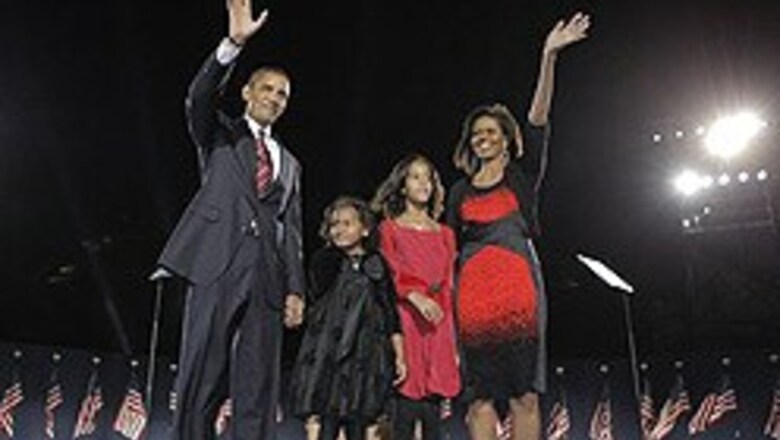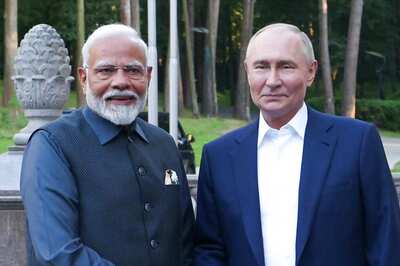
views
Chicago: Newly-elected US president Barack Obama will face a daunting array of foreign policy challenges, from wars in Afghanistan and Iraq and the global financial crisis to the need to shore up the country's frayed international image.
While taxes, health care and the economy all played a role in the campaign before Tuesday's vote, national security issues such as the Iranian nuclear standoff and Middle East peace are likely to remain near the top of the agenda when Obama takes office from President George W Bush on January 20.
"The mantra for the next administration has to be, 'Be careful what you wish for because you just might get it'," said James Lindsay, who was a foreign policy aide to President Bill Clinton and is now with the University of Texas, Austin.
"The new president-elect is going to have a full foreign policy inbox and decisions to make with enormous consequences for American security," added Lindsay.
Foreign policy advisers say Obama, a Democrat who will become the first Black US president, has an understanding of world affairs rooted in a childhood spent partly in Indonesia and a quest to learn about his father's Kenyan heritage.
The Illinois senator, 47, will face pressing concerns even before he takes over from Bush, a Republican.
On November 15, Bush will convene a summit in Washington to look at the global economic crisis.
While Obama is unlikely to attend the meeting himself, it could give his economic team the chance to meet some of the visiting foreign officials on the sidelines of the conference.
The Obama administration will also inherit the Iraq and Afghan wars and an intensifying effort to pursue al-Qaeda militants on Pakistan's border with Afghanistan.
Stopping Iran from acquiring a nuclear weapon — Tehran says its nuclear program is purely for civilian purposes — and holding North Korea to its promise to dismantle its nuclear weapons program are also pressing issues.
Familiar Names, New Approaches
Obama has a number of foreign policy advisers with roots in the Clinton administration, although he has also said he could work with Republicans.
PAGE_BREAK
Republican Senator Chuck Hagel and Democratic Senator John Kerry are two names frequently mentioned as candidates for secretary of state.
Obama, like his defeated Republican rival John McCain, has vowed a reinvigorated effort toward Middle East peace and promised staunch support for Israel.
Obama foreign policy adviser Mark Lippert said fighting terrorism, dealing with militants along the Afghan-Pakistan border and killing or capturing Osama bin Laden are top national security priorities.
Obama has pledged to end the Iraq war and bolster the US troop presence in Afghanistan.
The ability to tackle deteriorating security in Afghanistan and pursue militants is "linked to the ability to make progress on political reconciliation in Iraq and the ability to draw down there," Lippert said.
McCain agreed on the need for more forces in Afghanistan, but opposed a timetable for withdrawal from Iraq, saying US troops should remain there as long as they are needed.
Obama's willingness to talk directly to US adversaries such as Iran and Syria was another major point of disagreement during the campaign.
Obama said the Bush administration's resistance to engaging foes has limited its diplomatic options, a position which the McCain camp called naive.
Obama opposed calls to oust Russia from the elite Group of Eight club of rich nations in response to Moscow's August war with Georgia, although he condemned the Russian invasion, triggered by Georgia's bid to reimpose control over breakaway South Ossetia.
One foreign policy priority Obama is likely to concentrate on is repairing ties with traditional allies, including many European countries, that were strained under the Bush administration.
Some analysts believe Obama's huge popularity abroad could give him an initial advantage, although it will not be a panacea for challenges such as persuading Europe to contribute more troops in Afghanistan.



















Comments
0 comment